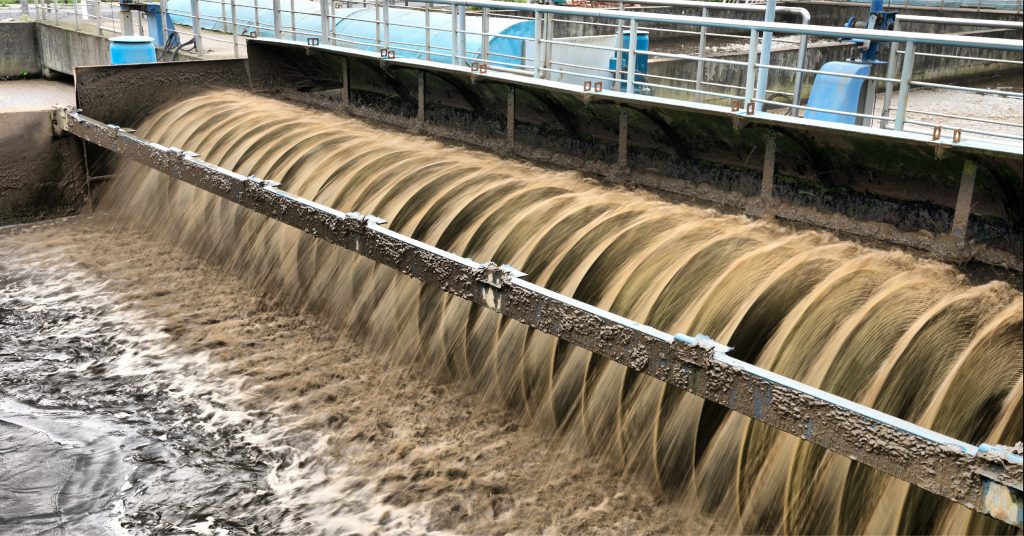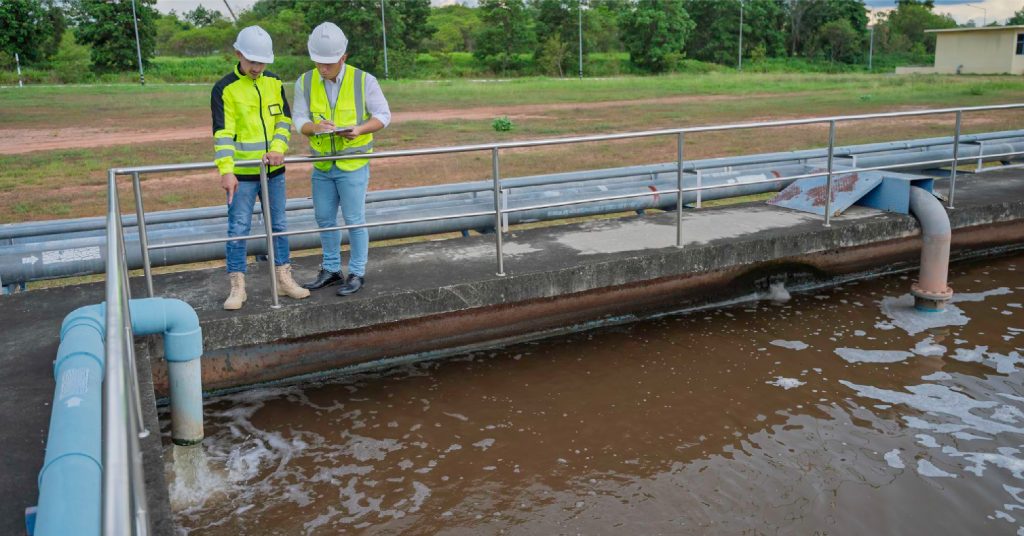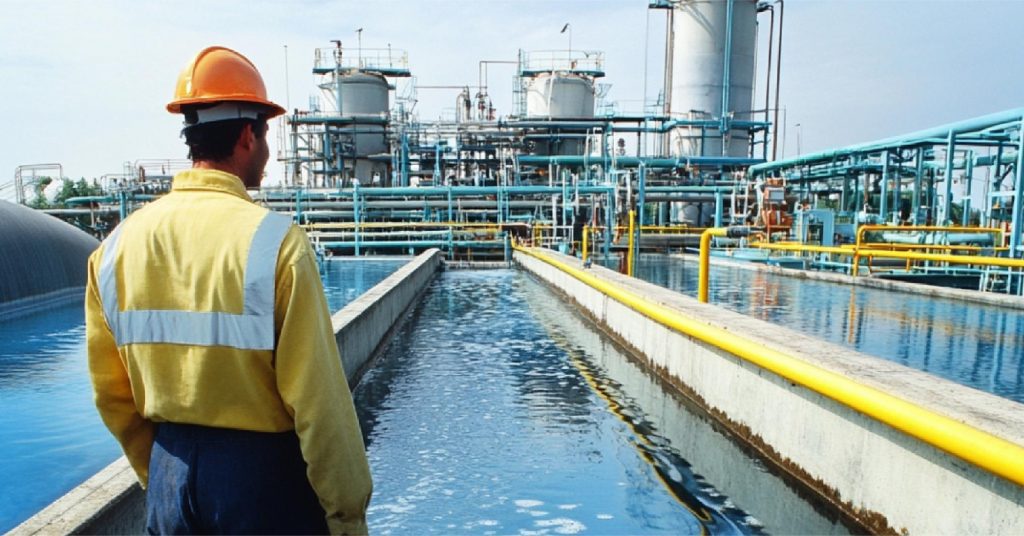Thailand faces significant challenges in managing its growing volumes of wastewater due to rapid industrialization, urbanization, and increased population density. Effective wastewater management is crucial for maintaining environmental standards, preventing water pollution, and ensuring public health. Among the many processes involved in wastewater management, sludge dewatering plays a critical role.
This blog delves into the importance of sludge dewatering, its methods, and the role of advanced technologies such as sludge dewatering machines and innovative systems in Thailand’s wastewater management landscape.
Sludge Dewatering: A Key Process in Wastewater Management
Sludge dewatering is the process of removing water from sludge, reducing its volume and weight, and making it easier and more cost-effective to transport and dispose of. In the context of wastewater treatment plants, dewatering reduces the liquid content of sludge, making it safer for disposal or further treatment. In Thailand, where wastewater treatment facilities are working to meet increasing demand, sludge dewatering is crucial for reducing landfill space and ensuring environmental compliance.
The benefits of sludge dewatering for wastewater treatment plants in Thailand are numerous:
- Cost Savings: Reducing the water content of sludge lowers transportation and disposal costs.
- Environmental Benefits: Dewatered sludge takes up less landfill space, reducing the environmental footprint of wastewater treatment plants.
- Efficient Operations: By minimizing sludge volume, treatment plants can operate more efficiently, freeing up resources for other critical processes.
Types of Sludge Dewatering Machines and Systems
Various sludge dewatering machines are employed in Thailand’s wastewater treatment plants, each offering unique advantages depending on the treatment needs. Two of the most commonly used systems are:
- Sludge Dewatering Belt: The sludge dewatering belt system involves passing the sludge through a series of filters that remove water, leaving behind dewatered sludge. This system is highly efficient and can handle large volumes of sludge, making it suitable for municipal wastewater treatment plants.
- Decanter Sludge Dewatering: Decanter sludge dewatering is another popular method in Thailand. This machine uses centrifugal force to separate water from sludge, leaving behind concentrated, dewatered sludge. Decanters are known for their ability to handle varying sludge compositions, making them versatile in industrial and municipal wastewater treatment plants.
Sludge Dewatering Bag System: Innovative Solutions
The sludge dewatering bag system is an innovative solution gaining popularity in smaller-scale wastewater treatment facilities, particularly in rural or remote areas of Thailand. This system involves placing sludge into specialized bags made of permeable fabric that allow water to pass through while trapping the solid material.
The benefits of the sludge dewatering bag system include:
- Low Maintenance: Once set up, the system requires minimal oversight, making it ideal for smaller operations with limited staff.
- Cost-Effective: Dewatering bags are a relatively low-cost solution for facilities that may be unable to invest in more expensive machinery.
- Environmental Advantages: The contained design of dewatering bags helps prevent contamination during the dewatering process, ensuring safe handling of sludge.
Sludge Dewatering Belt: Maximizing Efficiency
The sludge dewatering belt system is one of the most common solutions used in wastewater treatment facilities. The process involves feeding sludge onto a belt where a series of filters and pressure rollers gradually squeeze out the water, leaving behind dewatered sludge.
The key advantages of the sludge dewatering belt system include:
- High Volume Processing: Belt systems are capable of processing significant amounts of sludge continuously, making them ideal for large treatment plants.
- Cost Efficiency: By dewatering sludge efficiently, belt systems help lower transportation and disposal costs.
- Adaptability: Belt systems can be tailored to different types of sludge, providing flexibility for treatment plants with varying needs.
Sludge Dewatering Calculations: Optimizing the Process
Accurate sludge dewatering calculations are essential for optimizing the dewatering process in wastewater management. Calculations help determine the ideal dewatering technique, machine settings, and processing time to achieve the most efficient results. Key parameters in these calculations include:
- Sludge’s initial water content
- Desired final dryness
- Processing capacity of the sludge dewatering machine
Ion Exchange’s Role in Wastewater Treatment of Sludge Dewatering in Thailand
Ion Exchange, a leader in water treatment technologies, plays a crucial role in wastewater treatment sludge dewatering in Thailand. They utilize advanced technologies with resource recovery to promote sustainable solid waste management. Their Integrated Waste Management System efficiently treats chemical, biological, and oily sludge generated during various waste treatment processes.
Additionally, Ion Exchange offers customized and pre-designed waste-to-energy plants, leveraging cutting-edge technology to convert municipal solid waste and sludge into clean water, energy (heat and power), and organic fertilizers. By doing so, they adhere to the principles of the circular economy, ensuring that waste is repurposed into valuable resources, contributing to a more sustainable future. Our range of products includes:
- Centrifuges
- Belt Filters Presses
- Screw Presses
- Faecal Sludge Treatment
Conclusion
Sludge dewatering is an indispensable part of wastewater management in Thailand, helping reduce sludge volume, lower costs, and improve environmental outcomes. With various methods, Thailand’s wastewater treatment plants can optimize their operations and ensure sustainable sludge management. Accurate sludge dewatering calculations further enhance the efficiency of these processes, ensuring cost-effectiveness and regulatory compliance. As the country continues to face growing wastewater challenges, adopting advanced sludge dewatering technologies will be essential for improving water conservation and environmental protection efforts.





